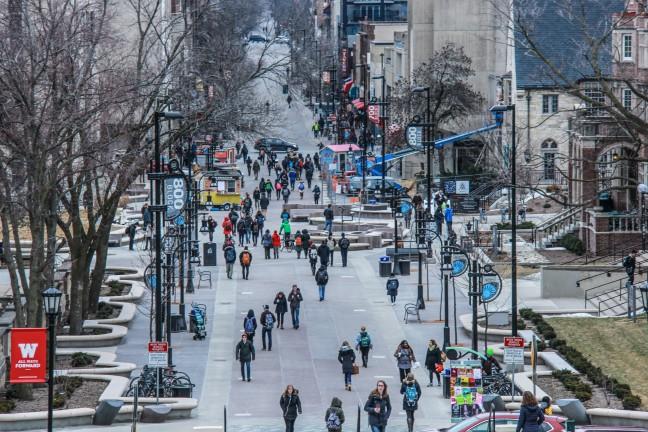Three University of Wisconsin professors — Autumn Kent, Gheorghe Craciun and Andreas Seeger — have received Simons Fellowships in Mathematics.
A total of 48 researchers in math and natural sciences across the country received a Simons Fellowship, which pays for the researcher to take up to a year of academic leave to focus entirely on their research instead of other academic duties.
Chair of the mathematics department Tonghai Yang said not only does the fellowship cover funding, but it also helps pay the researchers’ salary.
“This special fellowship is meant for faculty,” Yang said. “The Simons Foundation will pay 50 percent of [the fellow’s] salary for a full year, as well as provide funding money.”
Kent said the program basically provides for any research expenses that the university or other funding sources would usually pay for through grants or a teaching salary.
It also allows for fellows to expand their research and collaborative network by traveling and attending conferences.
“When you take a sabbatical, you have the option to take a semester of paid leave at 100 percent of your salary, or an entire academic year at a smaller percentage,” Kent said. “A Simons Fellowship complements a sabbatical leave so that you may take an entire year of paid leave at 100 percent, and provides funds for travel and research expenses.”
Kent studies hyperbolic geometry, topology and group theory. She examines geometric surfaces and spaces of geometric objects, as well as how these objects might interact.
Craciun’s mathematical work intersects with biological research, and he creates methods and models for understanding gene expression, as well as cellular metabolic and regulatory pathways.
Seeger’s work focuses on harmonic analysis. He studies oscillation patterns and uses Fourier analysis and trigonometric concepts to examine wave functions.
When asked how the fellowship will help develop her research, Kent said time off from teaching will help her focus entirely on some of her ongoing projects.
“Often teaching, service and family make it difficult to focus continually on one’s research,” Kent said. “There are a few research problems that I have been working on for a very long time, and the fellowship will afford me the opportunity to work on these intensely. It will also allow me time to visit my collaborators both in the U.S. and abroad.”
While Yang spoke pridefully of the three fellows, he said the fellows deserve the reward and recognition, not necessarily the department.
Yang said because UW has a strong research program, they are able to support the work of many researchers, but “it’s a reward for the people that do the research.” Last year, the department also produced three fellows.
Overall, Yang said while it was encouraging to see coworkers gaining recognition for their projects, their motivation was intrinsic.
“We work because we really like math,” Yang said. “We really enjoy it, and we enjoy training students.”


